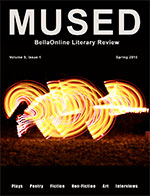Character, Conduct and Consciousness
R.D. Hartwell
How much of what I do is done automatically, without thought or conscious intent? I find that I am beginning to question many of the issues in education which I have taken for granted for so many years as being correct methodology. It is perhaps best that I picked up the book of Mahatma Gandhi’s writings next, after yesterday. I read where he desired to reduce himself to zero, to naught, and to focus on the oneness of a relationship to God. I think the need for this speaks eloquently of much that is wrong in education, wrong with the modern world, and much that is wrong with me.
For years we spend all of our focused attention on the one of the ego, the I-me-mine, and rarely glimpse the other, or even an-other. We then try to couple, in multi-various ways, to use our dualism as a mirror of ourselves. Eventually, some of us try to extend our minds to grasp the infinitude of creation: God or Life or Thou. I realize that much of what I have done has been influenced by this seeking beyond the me. It has been wrong!
As Gandhi realized, one must reduce oneself to a zero, to a naught of the ought of life. This may appear to be merely a placeholder, valueless of the existence of others; however, it is the exact nature of this self-less-ness, value-less-ness, which gives value to others beyond their own intrinsic worth. This is best described as translating one’s life “into character, conduct, and consciousness,” to use Gandhi’s phrasing. Only by this reduction of the self to naught will one encounter the ought of life and, thus, provide value to what appears to be purposeless existence. One’s life should be led as the outward manifestation of the inward soul. This is as true for a Gandhi as for a teacher or me.

